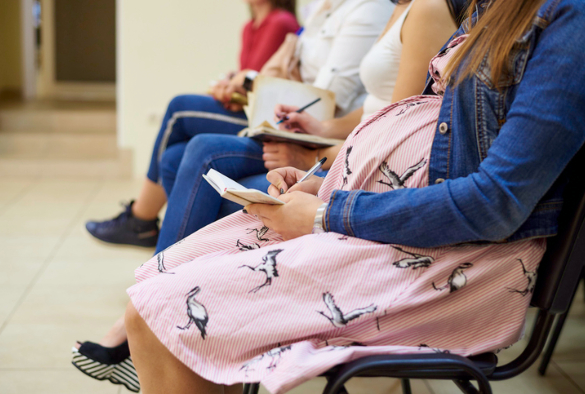
University of Liverpool psychologists have led the development of a new guide for healthcare professionals and commissioners to help improve mental health support for new, expectant or bereaved mothers.
The guide and case studies, which were commissioned by NHS England and NHS Improvement, describe the underpinning principles of and good practice for supporting good mental health and psychological wellbeing in maternity and neonatal settings. The guide will inform the development of the newly commissioned maternal mental health services which NHS England and NHS Improvement is piloting in 33 sites across the country, and which will be available in every area of the country by 2023/24.
Perinatal mental health (PMH) problems are those which occur during pregnancy or in the first year following the birth of a child. Perinatal mental illness affects up to 25% of new and expectant mums and covers a wide range of conditions. If left untreated, mental health issues can have significant and long-lasting effects on the woman, the child, and the wider family.
The new guide contains a comprehensive approach to identifying those at risk as they enter the maternity service, to helping those enduring PTSD or depression linked to their maternity experiences, to supporting those who experience a perinatal loss.
Clinical psychologist Professor Pauline Slade from the University’s Department of Primary Care and Mental Health led the development of the new guidance in liaison with Dr Ruth Butterworth and Dr Geraldine Scott-Heyes.
Professor Slade said: “The perinatal period is a time of major transition for women, partners and families. There can be feelings of vulnerability and of being overwhelmed. Support from psychologically aware healthcare professionals has an enormous positive impact on psychological wellbeing and mental health in pregnancy and childbirth.
The guide focuses on prevention of mental health problems as much as intervention; in other words, how through training and support for staff we can help women to feel heard and safe, reducing the development of psychological problems whilst also providing accurate identification of psychological distress and rapid access to psychological intervention where this is needed.”
The guide was co-produced by multidisciplinary group of professionals working in partnership with experts by experience including University of Liverpool, Cheshire and Mersey Specialist Perinatal Service, Belfast Health and Social Care Trust, Miscarriage Association, Antenatal Results and Choices, Spoons, Birth Trauma Association, SANDS and Liverpool Maternity Voices Partnership.
‘Supporting mental healthcare in a maternity and neonatal setting: Good practice guide and case studies’ including full list of participating organisations is available here: https://www.england.nhs.uk/publication/supporting-mental-healthcare-in-a-maternity-and-neonatal-setting-good-practice-guide-and-case-studies/
This project was supported by the University’s Consultancy Team. To find out more, please visit Consultancy – Research – University of Liverpool.